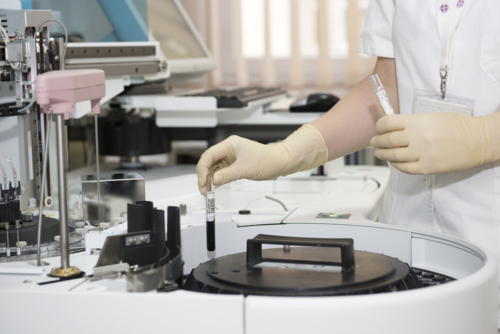Industry commentators have claimed that we could be entering a clinical trial equipment ‘rental age’[i].
The ability to pay for equipment usage over the length of a trial is a persuasive financial argument for renting – and may be more manageable than the large upfront cost of buying. However, there are other reasons why renting clinical trial equipment may be a better option than owning outright.
Using the four stages of the clinical trials process, we explore why renting the equipment you need could be a more efficient, effective and financially prudent choice.
Stage 1: Planning
Before commencing your trial you need to establish a budget. Purchasing equipment upfront demands a large investment and can make it hard to ensure return on investment. There are benefits to buying equipment, as you’ll have everything you need at the start and can avoid any potential disruption that might occur from fluctuations in global prices or trade disputes[ii].
However, renting equipment allows you to have a regular payment schedule rather than a larger upfront cost, potentially freeing up cash flow to invest in other areas. The lower initial expense of rental can create extra financial breathing room.
There’s also the additional advantage of being able to fund equipment rental via an operating expenditure budget, as opposed to a capital expenditure budget – and you won’t need to account for a depreciating asset in the long term either.
Stage 2: Approvals
Gaining approval for third party services and arranging trial supplies at your sites is an important part of the process. Third-party sites may already have their own equipment that can accelerate trial commencement, but it’s up to you to quality assure it.
In multi-site trials, if you need to purchase new equipment you’ll need to decide whether to procure this centrally or locally. It’s important to ensure that every site has the right equipment at the right time, which can be a logistical challenge.
However, renting equipment from a supplier with a global reach like MESM can ensure all sites have the same, high-quality equipment needed for their trial.
If necessary, full training can be provided for all staff on how to use this new and potentially unfamiliar equipment. If all staff are fully trained to use the same equipment, variation in measuring and recording can be avoided.
In guidance for laboratories that analyse clinical trial samples, the European Medicines Agency states that: ‘Apparatus should be periodically inspected, cleaned, maintained and calibrated according to standard operating procedures or the manufacturer’s manuals’[iii]. It’s up to you to ensure this happens.
Working with a clinical trials supplier can provide you – and those charged with approving your trial - with the assurance that equipment will be calibrated and maintained to international standards, giving you peace of mind.
Stage 3: Trial Management
We’ve written extensively on how you can avoid costly research delays, but the bottom line is: if your equipment isn’t working, then neither can you. And if it’s your equipment, it’s your responsibility to fix it.
Following appropriate procedures and ensuring that equipment operates fully is the duty of your equipment provider. Renting won’t stop equipment needing technical support, but it’s the responsibility of the provider to repair or replace the item – not you.
The flexibility works both ways. With so many trials undergoing delays, you retain the freedom to extend the agreement, ensuring the continuation and security of your trial.
Stage 4: End of trial
Once your trial has ended, you could be left with expensive and specialised equipment. You can choose to dispose of it – potentially accepting a large hit in depreciation – or store it to be used again. If it’s out of date, you can recycle it.
The equipment will need to be decontaminated, according to the legislation of the country you are in,[iv] a process that will need to happen before the equipment is either re-used, sold or stored. It may also need to serviced and recalibrated.
However, if you rent you can have the support of your equipment provider at the end of your trial – making everything more manageable. As part of a rental agreement, your provider will arrange for swift collection of equipment, making the whole End of Trial process as straightforward as possible.
What if things go wrong?
Clinical trials can be inherently risky[v]. If your trial fails to reach endpoints, you will need to immediately shift it to a new project - which is difficult given the time it takes to set up a trial. If not, then you’ll need to store and care for your equipment.
Planning for the setback of your trial doesn’t demonstrate a lack of confidence but illustrates a pragmatic approach to the complex business of planning and managing a trial.
A phased rental agreement will help to protect you from the costly implications of setbacks. It won’t insulate you from everything, but it shows an appreciation for the clear possibility of the unexpected.
A rental agreement is a partnership between a provider and those running clinical trials, so you’ll want to choose your clinical trials rental provider wisely. At MESM we work across the world to provide clinical trial equipment rental that allows you to focus on what’s important: the research and the patient.
[i] Extance, A. (2017). Would you rent your lab equipment?. [online] Chemistry World. Available at: https://www.chemistryworld.com/careers/would-you-rent-your-lab-equipment/3007668.article [Accessed 2 May 2018].
[ii] McConaghie, A. (2018). Trump’s trade war with China could drive up US pharma costs - Pharmaphorum. [online] Pharmaphorum. Available at: https://pharmaphorum.com/news/trumps-trade-war-with-china-could-drive-up-us-pharma-costs/ [Accessed 2 May 2018].
[iii] Ema.europa.eu. (2018). [online] Available at: http://www.ema.europa.eu/docs/en_GB/document_library/Regulatory_and_procedural_guideline/2010/09/WC500096987.pdf [Accessed 2 May 2018].
[iv] Ec.europa.eu. (2018). [online] Available at: https://ec.europa.eu/health//sites/health/files/files/eudralex/vol-1/dir_2005_28/dir_2005_28_en.pdf [Accessed 2 May 2018].


